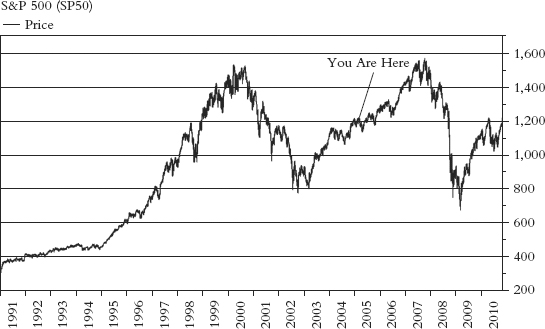Chapter 7
Expanding Concern: A Bigger Bubble?1
Source: © FactSet Research Systems.

What is it that characterizes the thinker? First of all, and obviously, vision. . . . The thinker is pre-eminently a man who sees where others do not. The novelty of what he says, its character as a sort of revelation, the charm that attaches to it, all come from the fact that he sees. He seems to be head and shoulders above the crowd, or to be walking on the ridge-way while others trudge at the bottom. Independence is the word which describes the moral aspect of this capacity for vision. Nothing is more striking than the absence of intellectual independence in most human beings: They conform in opinion, as they do in manners, and are perfectly content with repeating formulas. While they do so, the thinker calmly looks around, giving full play to his mental freedom. He may agree with the consensus known as public opinion, but it will not be because it is a universal opinion. Even the sacrosanct thing called plain commonsense is not enough to intimidate him into conformity. What could seem nearer to insanity, in the sixteenth century, than the denial of the fact—for it was a fact—that the sun revolves around the earth? Galileo did not mind: his intellectual bravery should be even more surprising to us than his physical courage. . . . Einstein’s denial of the principle that two parallels can never ...

